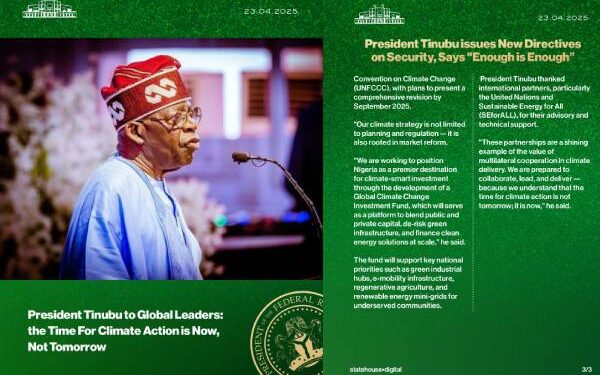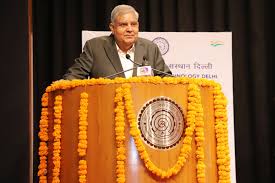
Training on UHC, Health Financing and Budget Accountability in Nigeria
- Health Sector
- No Comment
- 306

Governments and international donor organizations increasingly acknowledge the role of civil society organizations (CSOs) in strengthening health systems and advocating for accessible and quality health care.
CSOs are helping to improve health service delivery and are contributing to informing evidence-based policies by facilitating dialogue between government and citizens on health sector priorities, performance, and accountability.
In many sub-Saharan countries, recent epidemics such as COVID 19 have severely impacted the health systems and drawn greater attention to the need to strengthen and increase investments in the health sectors and strengthen community health systems to deliver essential health services to citizens. These threats to national health systems have also brought to the fore critical issues such as the limited engagement of CSOs in emergency response planning, budgeting, and monitoring.
While there is a strong push for greater civil society engagement in governance and accountability for health, CSOs often lack the skills, tools, and opportunities to engage other stakeholders in issues of health finance and governance at national, subnational, and community levels.
To address these challenges, there is an urgent need to strengthen the capacity of, and support civil society organizations to meaningfully participate in health programming, financing, budget advocacy, and accountability.
To bridge the identified gaps, The Global Fund to Fight AIDS, Tuberculosis and Malaria, The Global Financing Facility (GFF), GAVI, The Vaccine Alliance, UHC 2030, and The Partnership for Maternal, Newborn and Child Health (PMNCH) are collaborating on a Joint Learning Agenda to develop and provide training and support on UHC, Health financing, budget advocacy, and accountability.
The overall goal of this Joint Learning Agenda is to build in-country capacity in health financing and to promote a multi-stakeholder collaboration that will hold, in a constructive way, governments and donors accountable for the level and use of funding allocated to health.
As part of the Joint Learning Agenda; representatives from 2 Nigerian based NGOs, Journalists Against AIDS (JAAIDS) Nigeria and Gem Hub Initiative along with CSO representatives from nine other Anglophone Africa countries participated in an online regional training between March and April 2021 organized by WACI Health and Global Fund Advocates Network (GFAN Africa).
As a follow-up to that training JAAIDS Nigeria and Gem Hub Initiative with the support of partners in the Joint Learning Agenda Initiative conducted a national training of up to 30 Civil Society Organisations (CSOs) and media representatives across all the geopolitical zones in Nigeria on UHC, Health financing and budget accountability. The training provided participants with the skills, tools, and support to request further transparency on health funding (including external funding) mobilization, allocation, and execution; and to conduct budget monitoring and advocacy around health spending.
Training objectives
The overall purpose of the training sessions was to assemble and train a coalition of stakeholders on requisite skills to advocate for the achievement of UHC goals and priorities through improved funding and transparency on health funding and spending. The objectives included:
- Deepening knowledge about UHC, Health financing and Budget processes to support budget tracking and advocacy around health spending for improved health outcomes.
- Acquiring and sharing knowledge among and within specific groups (media audiences, young people, existing networks).
- Strengthening transparency and accountability for health investments, UHC policies and processes in the country.
- Acquiring tools and skills to advocate and design innovative health financing options at National and State levels.
- Learning techniques to be used in holding government accountable as it relates to health and contributing to advocating for sustainable public financing.
Training format
Participants in the training sessions included journalists; representatives of youth networks; persons with disabilities networks; CSOs working on health social justice, and related issues; members of domestic health financing; UHC and Budget advocacy networks. LISDEL was represented. These institutions were selected from across all the geopolitical zones in Nigeria. The training adopted a hybrid format (virtual and in-person sessions) and was delivered using presentations, plenary and group works/breakout sessions.
Key highlights
Access to health services is not universal and it is influenced by a wide range of factors including culture, religion, gender, income level, marital status, family size etc. All countries, Nigeria inclusive are making commitments and efforts to achieve universal health coverage.
Some issues identified around Nigeria’s UHC journey includes:
- Only about 5 percent of the population is covered by the NHIS (at the national level) – majorly, the formal sector – public sector, organized private sector, Armed Forces, Police, Paramilitary etc. Others covered are the informal sector groups and vulnerable groups (taken care of by BHCPF and other interventions).
- High rate of Out-Of-Pocket Expenditure – 76.6% of Health Expenditure.
- 24 States out of 36+1 are yet to fully key into the BHCPF.
- The government does very little to control the geographic location of health facilities by both private and public sector owners leading to allocative inefficiency.
- Poor health system.
- Poor integration of private health facilities in the nation’s healthcare delivery system
- Poor health financing – The Abuja Declaration is yet to be met in Nigeria.
- Poor political will
- Unwillingness to take up health insurance policy.
Nigeria is not doing well based on these and other measurements of key health outcomes. This situation is not too different at the subnational level.
The NHIS (Nigeria’s commitment to achieve UHC) was launched in 1999 with the mandate to attain UHC in Nigeria by 2015. Coverage is currently very low after many years of implementation. The NHIS is/has faced various challenges hindering achievement of its mandate including the political structure of Nigeria as a federal nation, legal impediments and equity issues on account of non-mandatory nature of NHIS, heavily fragmented system without integration and poor cross-subsidization, inefficiency due to some weak designs (HMOs, provider payment mechanisms), and very high informal sector of the economy.
To catalyse change, stakeholders and actors need to close the existing wide knowledge-policy-implementation gap by operational/implementation research; adopt new technology in handling health challenges; use innovative approaches to address poor health financing; develop contextual and sustainable mechanisms in engaging key non-health stakeholders – legislators, budget and finance; accelerate private sector engagement; and prioritize result tracking.
Draft state level/regional UHC/health financing advocacy plans/strategies were developed during the workshop. These would be finalized and integrated as a National Advocacy Strategy Plan for UHC and improved public investment for health.
Writer: Ademuyiwa Damilola (LISDEL)
Editing: Abude-Aribo Juliana (LISDEL)





